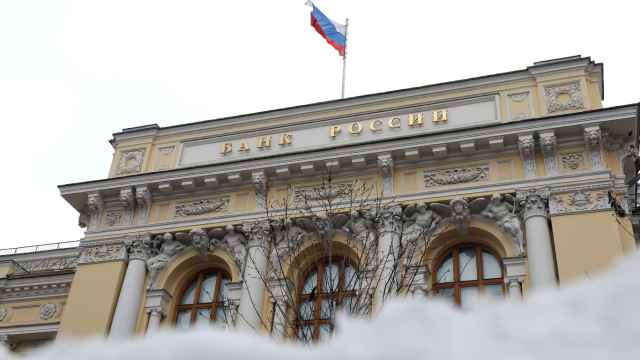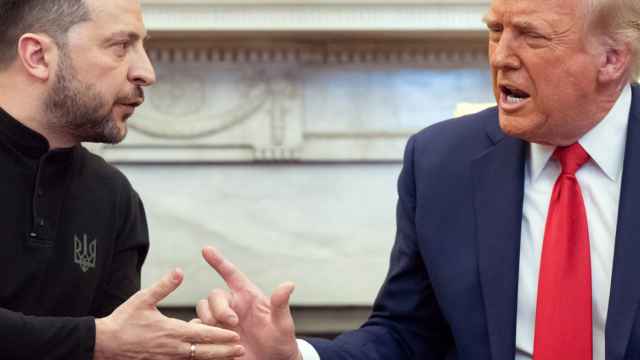Russia has an estimated 1 million people who are HIV-positive, and the number of new cases is growing at an 8 percent rate annually. The country cannot ignore this ticking time bomb.
Beyond any doubt, Russia can pride itself for having halved the rate of HIV transmission from mother to child and bringing care and treatment to almost every child born with the virus.
But as the epidemic continues to grow, maintaining such coverage means supporting more women and children exposed to the virus. This includes providing support and services to drug-dependent pregnant women. The United Nations Children’s Fund, or UNICEF, makes it clear in its report “Blame and Banishment: The Underground HIV Epidemic Affecting Children in Eastern Europe and Central Asia” that it is the young who pay the highest price.
In Russia, 70 percent of those infected were diagnosed between the ages of 15 to 30. More than 43 percent of new HIV cases in 2008 and 2009 were registered among women of childbearing age.
Over the past two decades since the collapse of the Soviet Union, the economic transition has exposed many families to financial hardship, unemployment and crumbling social safety nets. These pressures, combined with widespread alcohol or drug abuse, made it difficult for many families to make ends meet.
As a result, it has become increasingly difficult for many families to protect their children. The number of children separated from their biological parents has not significantly decreased, leveling off at more than 710,000 over the last five years.
Most of these children will be deprived of the love, care and support essential throughout childhood to allow them to reach their own full potential — and later to lead a productive life as adults.
In Russia, there are an estimated 1.8 million people who take drugs intravenously, and a large proportion of these drug users started this habit in their teenage years.
HIV-affected children — whether they are living with HIV, or are HIV-negative and living with HIV-positive parents — are often rejected from kindergartens and schools, despite legislation that prohibits this. Judgmental attitudes among health and social workers often discourage adolescents from seeking information about preventing HIV or how the disease is treated.
In most people’s minds, the stigma and discrimination from others would be the worst consequence of contracting HIV — even worse than the medical complications.
Many Russian HIV programs try to bring integrated support to families, children and adolescents vulnerable to the epidemic. In partnership with the Health and Social Development Ministry and the Foundation for Children in Difficult Circumstances, UNICEF has developed planning tools and guidance for regions to help them provide better and timely support to families in difficult situations. This will help reduce child separation and abandonment. With the Health and Social Development Ministry and the St. Petersburg State University, more than 100 youth-friendly services have been opened across the country. The St. Petersburg Clinical Hospital of Infectious Diseases, headed by Dr. Yevgeny Voronin, has seen half of its abandoned HIV-positive children adopted over the past two years.
But the success of these and other initiatives will remain limited if we do not break from the past. It will be critical to ensure that adequate resources are allocated to fund programs that work on effective prevention of HIV. These programs must integrate HIV prevention activities with ongoing support for vulnerable families and programs for high-risk sectors, such as intravenous drug users.
We do not need policies, services and a society discriminating against vulnerable families, their children and people living with HIV. Those would further drive the epidemic underground and make it increasingly more difficult to control.
To reverse the HIV epidemic, we must have the courage to face realities and to care, respect and protect the most vulnerable people in the country.
Bertrand Bainvel is the UNICEF representative to Russia.
A Message from The Moscow Times:
Dear readers,
We are facing unprecedented challenges. Russia's Prosecutor General's Office has designated The Moscow Times as an "undesirable" organization, criminalizing our work and putting our staff at risk of prosecution. This follows our earlier unjust labeling as a "foreign agent."
These actions are direct attempts to silence independent journalism in Russia. The authorities claim our work "discredits the decisions of the Russian leadership." We see things differently: we strive to provide accurate, unbiased reporting on Russia.
We, the journalists of The Moscow Times, refuse to be silenced. But to continue our work, we need your help.
Your support, no matter how small, makes a world of difference. If you can, please support us monthly starting from just $2. It's quick to set up, and every contribution makes a significant impact.
By supporting The Moscow Times, you're defending open, independent journalism in the face of repression. Thank you for standing with us.
Remind me later.





